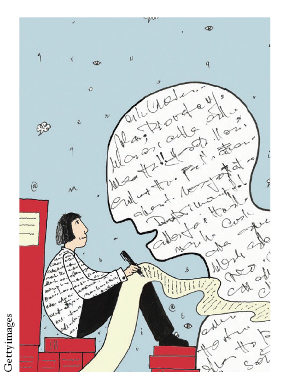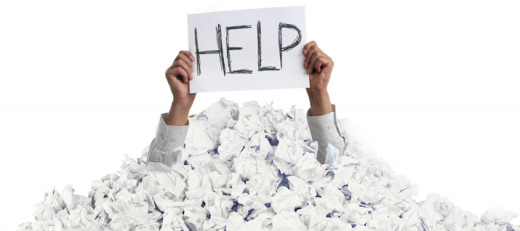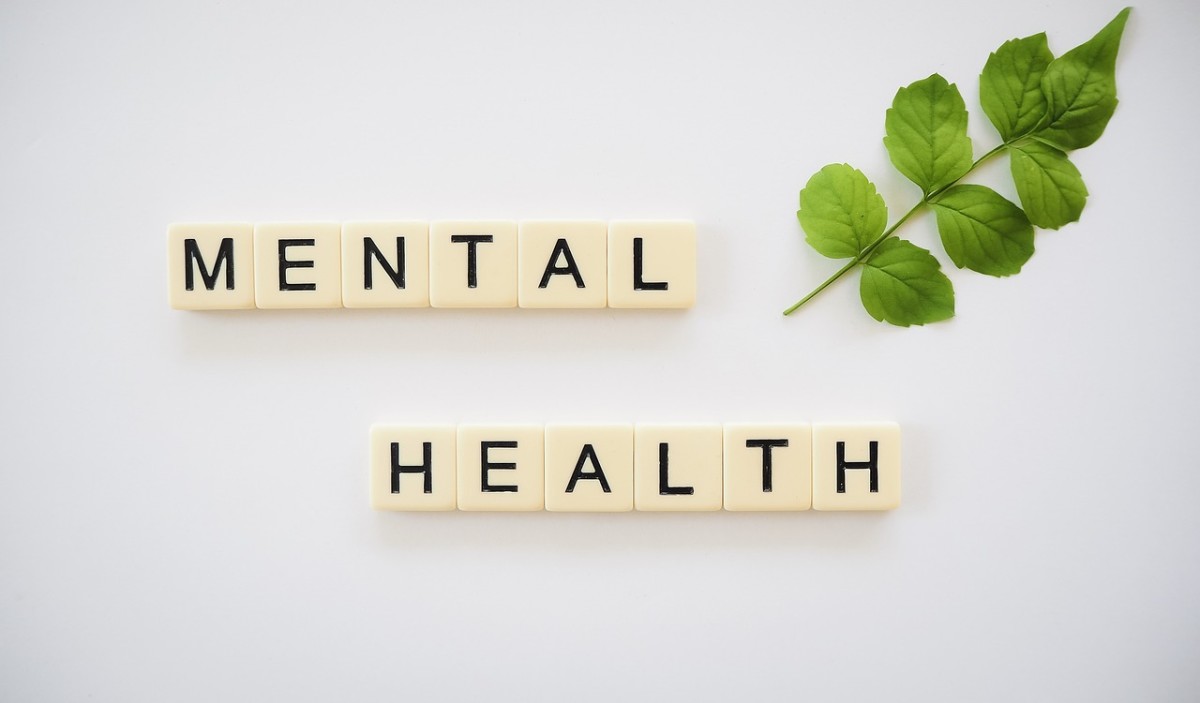- HubPages»
- Health»
- Mental Health»
- Mental Health Self-Help
Procrastination - How to Stop Procrastinating
The Illusion of Procrastination
Procrastination is a bad habit that helps us believe by delaying doing something, we are helping ourselves. In reality, people who procrastinate have distortions of thought or irrational thinking.
Their illogical thinking causes them to underestimate the time that is needed to complete the task. It causes them to misjudge the amount of motivation they need to do the projects. It causes them to believe they need to be in the right frame of mind to be successful to complete it. A procrastinator falsely believes they can only do the task if they do it perfectly. They fear if things are not perfectly set up to do it, they will not be able to do it to their own expectations. Perfectionists fear mistakes, and delve into all or nothing thinking.
Ways We Procrastinate

How to Stop Procrastinating
Feeling disorganized is also a leading cause of procrastination. Without prioritizing what we need to achieve, we may never set in place, the necessary motions to complete the task. Our illogical thinking may distract us from doing what we need to do.
How to stop procrastinating
-
be realistic
-
be open to trying new ways to do things
-
evaluate how you may distort what it takes to get a task done
-
keep a journal about what you think about and how you respond to it
-
identify your fears
-
look for ways to improve your organization
-
work backwards from the date something is due and outline what you need to do to complete the task
-
break the task into parts
-
note what other projects and responsibilities you have that may take up your time
-
review each day to see what you need to do and where you are
-
keep your self evaluation updated
-
write a daily and weekly to do list to keep your procrastination under control
-
break all tasks into smaller parts so that you can tackle them -tell yourself you will do only 10 minutes - do one section - a certain number of things - anything that gets you from one point of doing to another.
Sometimes it is difficult to get motivated. Logical thinking may help you realize the cost of procrastinating and think about the benefits of starting, you will most likely get going on your project. The whole idea is to break the inertia.
Procrastination
What is the most common reason you procrastinate?
Perfectionism and Procrastination
It is important to give up on perfectionism. Trying to do things perfect by not doing it all is irrational and illogical thinking. Do the best you can and in all liklihood it will turn out fine.
If you find yourself distracted and not getting tasks done, try to create a work environment that enables success in completing your projects. Focus on what you need to do until you get to a point that helps you feel you have made some progress.
Try to have some discipline so that you avoid temptation to do the easiest and most fun things instead of the things you may really need to do.
There Are Many Reasons We Procrastinate

Getting Beyond Procrastination
Part of getting beyond procrastination has to do with prioritizing things. It is helpful to get an accurate perspective of what you want for yourself. The day is only so long, you have limited time and energy and you can’t get everything done you want to do. But by knowing your priorities you can learn to motivate yourself to do the things you are procrastinating.
-
know and utilize your strengths
-
acknowledge your weaknesses
-
pursue your passions
-
understand what matters most to you
-
ask yourself what this day is about and look to create your day
-
ask yourself what is this moment about and make the most of it
-
evaluate your day and take pride in your accomplishments
-
what did you learn about yourself today
-
what is next
More Articles About Procrastination
Logical Thinking to Stop Procrastination
Procrastination holds us back, yet we do it for the reward of avoiding the pain and discomfort of doing something we may find boring, pointless, stupid, hard, risky, complicated, overwhelming, or emotionally painful, to mention just a few reasons.
Logically we know we eventually have to do the task, we are just fooling ourselves until we get to a point that we are nearly forced to do it.
Steps to thinking logically about procrastinating:
-
look at the pain in procrastinating - while you are looking to avoid pain by not doing the things you need to do, you are also creating pain for yourself by not doing the things you need to do. Ask yourself which pain is easier to deal with.
-
think about how much better you will feel when you get done what you have procrastinated. There is a great reward in getting things off your mind. You also will feel good about doing it and that will help increase your self esteem.
-
use pen and paper to write down a list about things you are giving up now and in the future, by continuing the procrastination. Then write down the things you will be able to experience when you stop procrastinating on the project.
-
don’t look at everything you have to do, look at one thing you have to do. Then break down that one thing into the smallest thing you can do. Stop procrastinating by starting to do even one little thing. Once you start doing one thing towards the task, you will create a flow. This momentum will help you continue little by little until you have completed the chore. Forward motion will get you feeling more motivated. This may help stop the overwhelming feelings that can cause someone to procrastinate.
-
look at the way you think, your beliefs, and the messages you tell yourself. Once you understand your perspective on things, you might not want to continue to procrastinate. Try to look at the way your thinking is interfering with the benefits, gains, and rewards you can achieve if you could be more effective and productive, instead of procrastinating.
-
take action. Your past does not have to be your future. Your past experiences don’t have to stop you from doing what you need to do today. Change your thinking and you can change your actions.
-
make a deal with yourself by letting yourself do something for just ten minutes. After you have worked for ten minutes, you can stop or continue. Do that every so often and you will be able to whittle away at the things you have been putting off. Remember the enemy of procrastination is action.
Procrastination can happen by getting overwhelmed and not being able to start or finish a project due to trying to achieve perfection. Getting organized and having a direction is helpful when it comes trying to get beyond procrastination..
Overwhelming Feelings

The Habit of Procrastination
Anyone can learn to be organized, but procrastination goes deeper than just the skill and discipline of arranging or structuring how to do things, or where to put things.
Getting beyond procrastination has to do with learning about your own habits and routines. It is a matter of working with who you are, not so much a perfection of what you want to be, or how you want things to be.
Procrastination can happen because we don’t have enough time. Sometimes we have wasted our time, sometimes we have spent too much doing the wrong things. By looking at where you are wasting your time, you can learn to deal with it better.
By taking an honest look at what your own habits are, you can learn to organize your time and space better suited to the way you do things.
Procrastination is best handled in the smallest of steps so that the tasks get completed a little at a time.
There are many tips to getting beyond procrastination, but it can only happen if you focus on what the big picture is and make a committment to getting there. The picture has to suit you. Getting beyond procrastination is a matter of just getting things done. Thinking about it, doesn’t make it happen. Getting things done, even the littlest item in a timely manner will get it done in an easier way than trying to tackle the whole project at once. So start today, and just do it. You will feel better in the long run.
Getting beyond procrastination starts with understanding your way of thinking, behaving, and your emotions about how you deal with discomfort. Inaccurate thinking, not dealing with things that are bothering you, and not following through are the root causes of procrastination.
Procrastination can only end, when you start with self awareness and being self observant. Change happens when you go from procrastinating to being productive. You can only be productive if you understand the way you think and desire to challenge these thoughts.
Changing your thoughts can come about when you look at the bigger rewards for yourself, instead of mentally responding to the short term gains that you believe are alleviating the discomfort.
Procrastination Helps Avoid Pain and Discomfort
Taking on a project may make you anxious and this can trigger other unpleasant feelings which would cause anyone to want to avoid the tasks. When this happens, emotions are affecting your reaction and the best way you know how to deal with this discomfort is to avoid it. But sometimes the things that stay in our minds seem worse than if we actually handle it.
Sometimes procrastination is fostered by anxiety, self doubt, fears, and insecurity. These feelings and thoughts can be overwhelming, and again, to avoid dealing with it, may seem like the best option. After all, how do you deal with these feelings, and what do you do with these feelings. Procrastination will always be the hidden solution because everything else that is stopping you may seem too difficult to handle. The truth is, nothing is as big as it seems.
Ask yourself about your fears and insecurities. Comfort yourself with the idea that you can do this, and you don’t have to continue to put off the things you need to do. When you finally free yourself from procrastination, you will feel a sense of emotional freedom. Emotional freedom is a great reward. So just go ahead and do it. Either do a small part of the task right now, or work on conquering your emotions to motivate yourself. Either way, you are taking action. Action is answer to procrastination.
Procrastination is not easy to battle. Perfection is not easy to achieve. Anxiety is not easy to deal with. But the truth is, you are bigger, stronger, and better than the weaknesses that may be ruling you. Avoiding may seem like a solution, but it is not, when there are other costs to pay. Procrastination is not easy to get beyond, but you can do it. Start today, start little by little and you may enjoy the results of your actions more than the effects of the avoidance. You can win the battle of procrastination. Just start today and see where this leads you.









